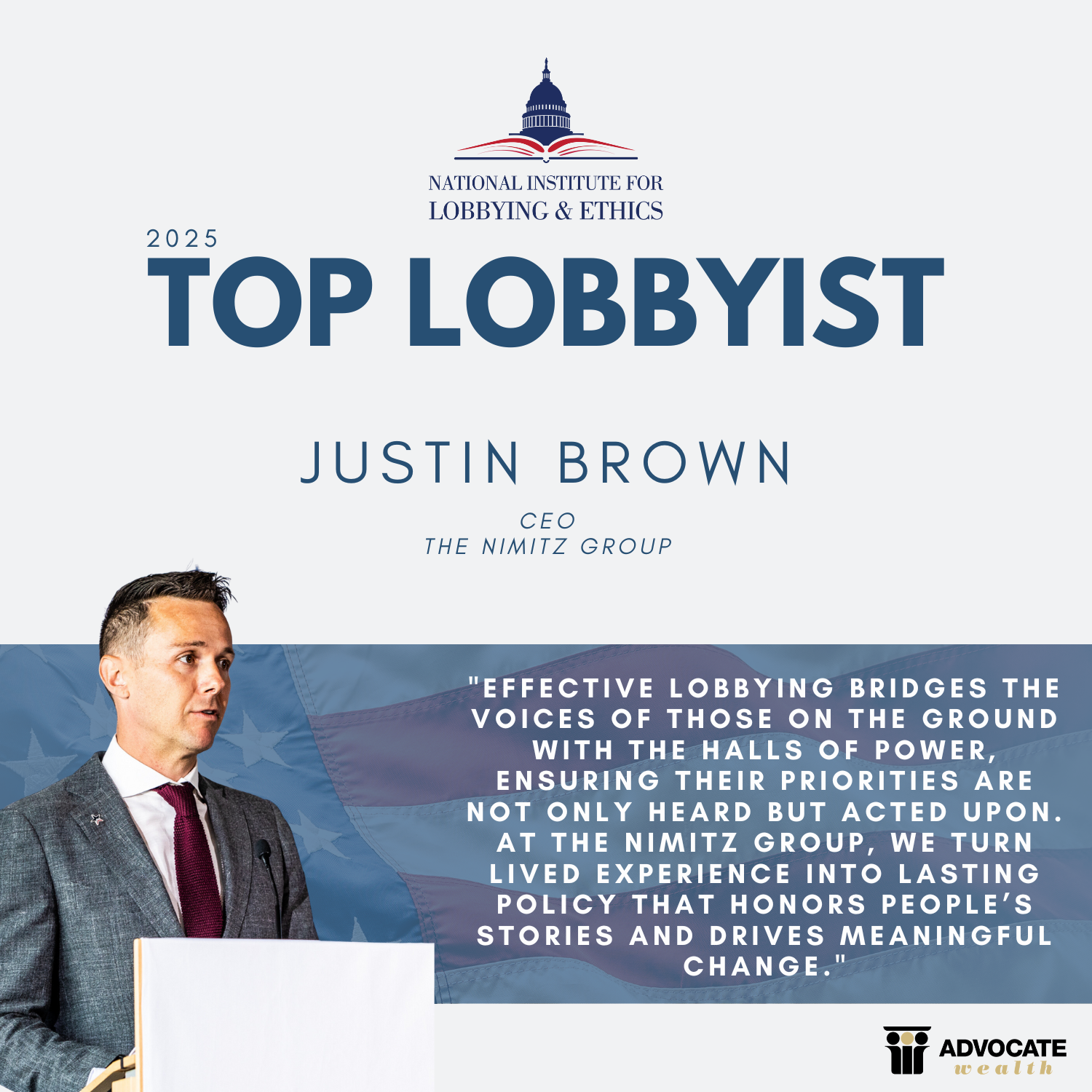The Nimitz Group is a leader in government relations excellence, recognized as the premier firm dedicated to veteran policy. Founded in 2016 with a dedication to creating significant change, the Nimitz Group has served as a prominent voice in Washington, DC for the well-being and rights of American veterans.
About Us
Our Services
-
Engaging with policymakers to champion legislative initiatives that directly veterans’ affairs, ensuring that their needs and concerns are effectively communicated and addressed within the legislative process
-
Offering expert advice and consultation on navigating government structures, fostering relationships with key stakeholders, and providing strategic guidance to achieve favorable policy outcomes for veterans
-
Conducting in-depth analysis and research on political landscapes to identify opportunities and challenges for veterans, providing strategic insights that guide effective advocacy and lobbying efforts
-
Crafting and executing comprehensive communication strategies that resonate with both national audiences and grassroots communities, effectively conveying the importance of veterans’ issues and building public support for favorable policy outcomes
-
Developing comprehensive policy proposals tailored to address the unique needs of veterans and guiding the implementation of these policies through effective advocacy, lobbying, and collaboration with relevant stakeholders
-
Establishing and nurturing strategic relationships with policymakers, government officials, and key influencers to build a strong network that can be leveraged to advance veterans’ interests and create impactful advocacy initiatives

Newsletters
Your weekly guide to Veterans Affairs, key health challenges like PTS and TBIs, veteran-specific funding opportunities, military family policy developments, and more.
Tracking the latest developments in AI, cybersecurity, emerging technology trends, and pivotal tech-related hearings shaping policy and industry.
Navigating the intersections of pharmaceuticals, federal health policy developments, evolving regulatory frameworks, and influential health hearings in Congress.
In The News










